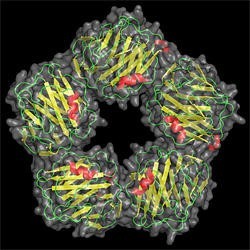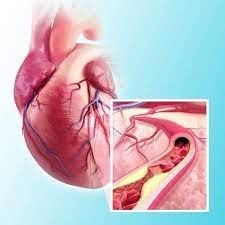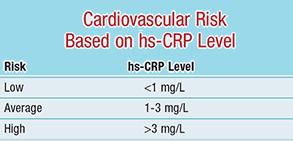
1. CRP or the C reactive protein is a protein which is made by the liver in response to inflammation anywhere in the body.

2. Hs-CRP is more sensitive than the CRP and can detect lower levels of this protein in the blood.

3. High Hs-CRP levels indicate a risk of getting coronary heart disease.

4. Also, in people who have had a cardiac event, if the Hs-CRP is high, they have higher chances of having a heart attack

7. Hs-CRP has to be interpreted with other investigations and clinical features and lifestyle patterns.
5. If the Hs-CRP levels are normal, the likelihood of another cardiac event is low.
6. Hs-CRP can also be increased in other inflammatory conditions and does not tell the cause of the inflammations.
High sensitivity C-reactive protein (hs-CRP) is a biomarker of inflammation and has been widely used in clinical practice for the assessment of cardiovascular disease risk. This protein is produced by the liver in response to cytokines that are released during inflammation. Hs-CRP is a highly sensitive test that can detect low levels of inflammation in the body, which makes it a useful tool for assessing the risk of various diseases. In this essay, we will explore why you should do an hs-CRP test and its clinical applications.
The Basics of Hs-CRP:
Hs-CRP is a protein that is produced by the liver in response to inflammation in the body. It is a non-specific marker of inflammation, meaning that it does not indicate the cause of inflammation. However, hs-CRP is a highly sensitive test that can detect low levels of inflammation, which makes it useful for assessing the risk of various diseases. Hs-CRP is measured in milligrams per liter (mg/L), and normal levels are typically less than 10 mg/L.
Why Should You Do an Hs-CRP Test?
Hs-CRP testing is useful in various clinical settings. Here are some of the reasons why you should do an hs-CRP test:
Assess Cardiovascular Disease Risk:
Hs-CRP is an important biomarker for assessing cardiovascular disease (CVD) risk. Numerous studies have shown that elevated levels of hs-CRP are associated with an increased risk of heart attack, stroke, and other cardiovascular events. This association holds true even in individuals who have normal cholesterol levels. Thus, hs-CRP testing can provide additional information beyond traditional risk factors, such as age, sex, smoking, and blood pressure, in predicting CVD risk. The American Heart Association (AHA) and the Centers for Disease Control and Prevention (CDC) recommend hs-CRP testing for individuals who are at intermediate risk for CVD.
Monitor Response to Therapy:
Hs-CRP testing can be used to monitor the response to therapy in patients with CVD. After a heart attack or other acute coronary event, hs-CRP levels may increase. Monitoring hs-CRP levels over time can help healthcare providers determine the effectiveness of therapy and identify patients who may need additional treatment.
Diagnose Inflammatory Conditions:
Hs-CRP testing can also be used to diagnose inflammatory conditions, such as rheumatoid arthritis, lupus, and inflammatory bowel disease. These conditions are associated with high levels of inflammation in the body, which can be detected by hs-CRP testing. Hs-CRP testing is a non-specific test and cannot diagnose a specific disease. However, it can provide valuable information that can help healthcare providers make a diagnosis and develop a treatment plan.
Assess Risk for Cancer:
Hs-CRP testing may also be useful in assessing the risk for cancer. Studies have shown that elevated levels of hs-CRP are associated with an increased risk of certain types of cancer, such as lung, colon, and breast cancer. However, more research is needed to determine the role of hs-CRP testing in cancer screening and diagnosis.
Clinical Applications of Hs-CRP:
Here are some of the clinical applications of hs-CRP testing:
Primary Prevention of Cardiovascular Disease:
Hs-CRP testing can be used to identify individuals who are at increased risk for CVD, even in the absence of traditional risk factors. The AHA and CDC recommend hs-CRP testing for individuals who are at intermediate risk for CVD. The results of hs-CRP testing can help healthcare providers determine the most appropriate course of action, such as lifestyle modifications, medication, or more aggressive risk factor management.
Secondary Prevention of Cardiovascular Disease:
Hs-CRP testing can also be used to monitor the response to therapy in patients with CVD. After


































